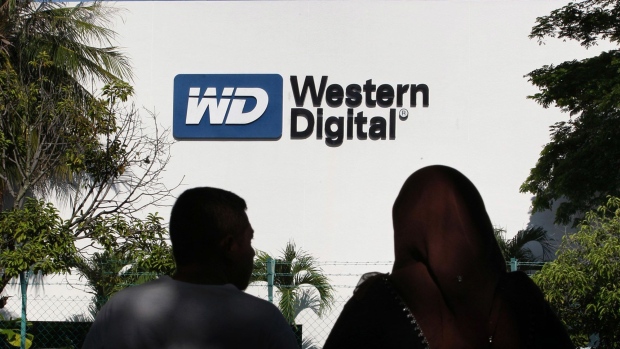May 3, 2022
Elliott Urges Western Digital to Spin Off Its Flash Business
, Bloomberg News

(Bloomberg) -- Elliott Investment Management, which manages funds that have about a $1 billion investment in Western Digital Corp., sent a letter to the board calling on it to conduct a full strategic review of the value that could be created by separating its two vastly different businesses: hard disk drives and NAND flash memory.
Western Digital has underperformed -- operationally, financially and strategically -- as a result of the challenges of operating both businesses as part of the same company, according to a statement from Elliott on Monday. In the letter, Elliott argued that a separation of the flash business would allow both businesses to be more successful and create significant value, which could send Western Digital’s stock to above $100 a share by the end of 2023. Western Digital’s shares jumped more than 9% in premarket trading on the news after closing at $53.92 on Monday in New York.
In addition to its public investment in Western Digital, Elliott is also offering more than $1 billion of incremental equity capital into the flash business at an enterprise value of $17 billion to $20 billion to be used either in a spinoff transaction or as equity financing in a sale or merger with a strategic partner.
Last week Western Digital reported adjusted earnings per share for the third quarter that beat analyst estimates. The results helped dispel concerns over the impact of Covid-related lockdowns in China, which are weighing on the hard disk drive business, as well as worries about the contamination of materials at some of its factories in Japan.
Western Digital is manufacturing partners with Kioxia Holdings Corp. of Japan and together they are one of the largest producers of the flash memory that provides storage in phones and computers. Semiconductor makers have struggled to keep up with a surge in demand, causing shortages that are hobbling industries across the economy. Flash memory is an essential component of many electronic devices, where it’s replaced magnetic disks as the main storage of data. Everything from Apple Inc.’s iPhones to electric cars and supercomputers relies on the chips.
(Updates with shares in second paragraph.)
©2022 Bloomberg L.P.





